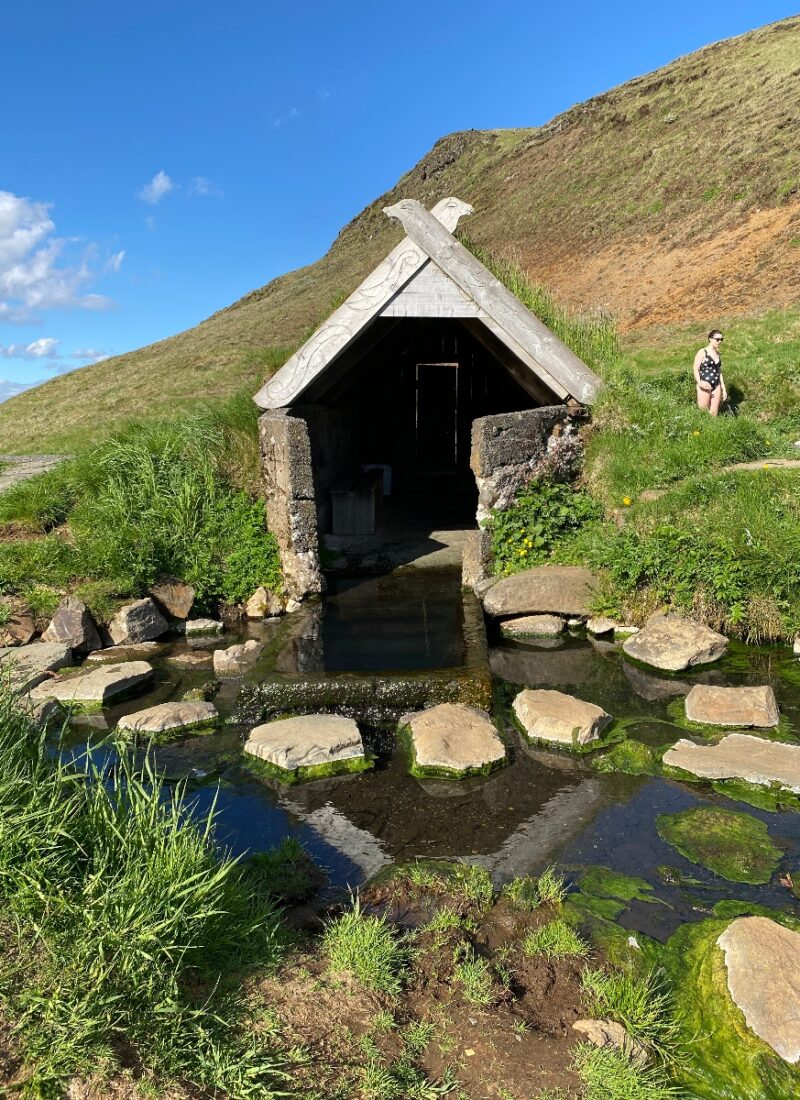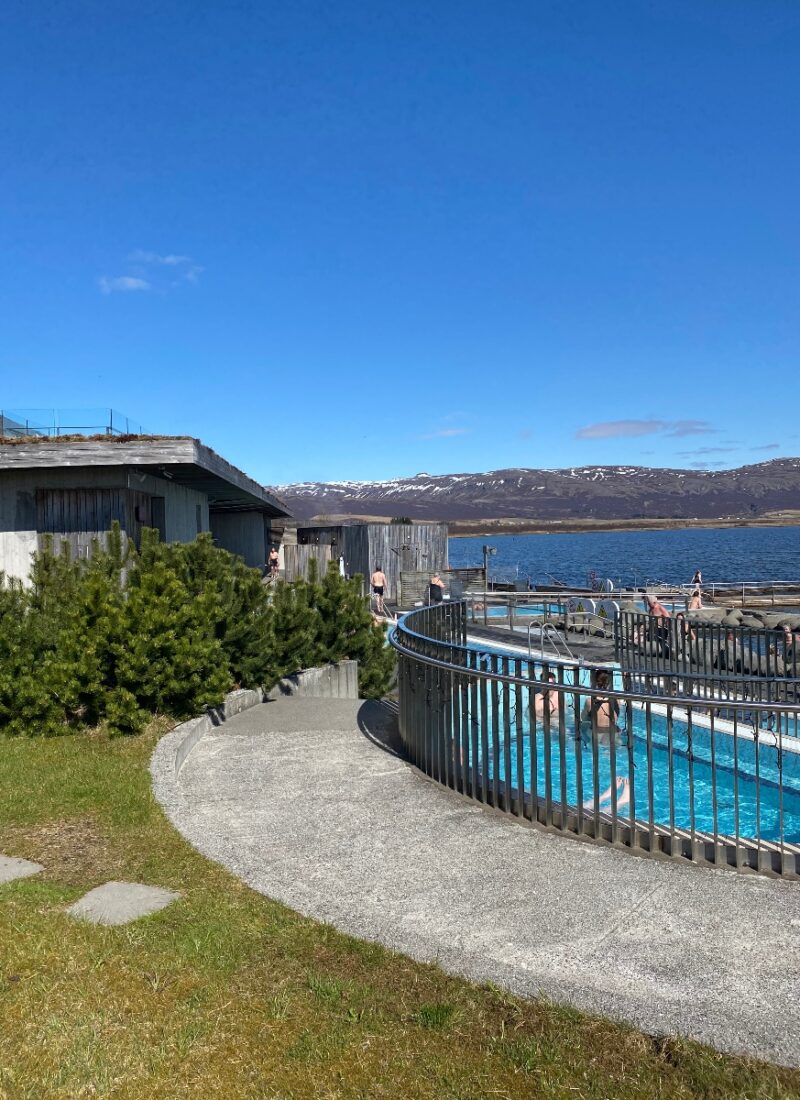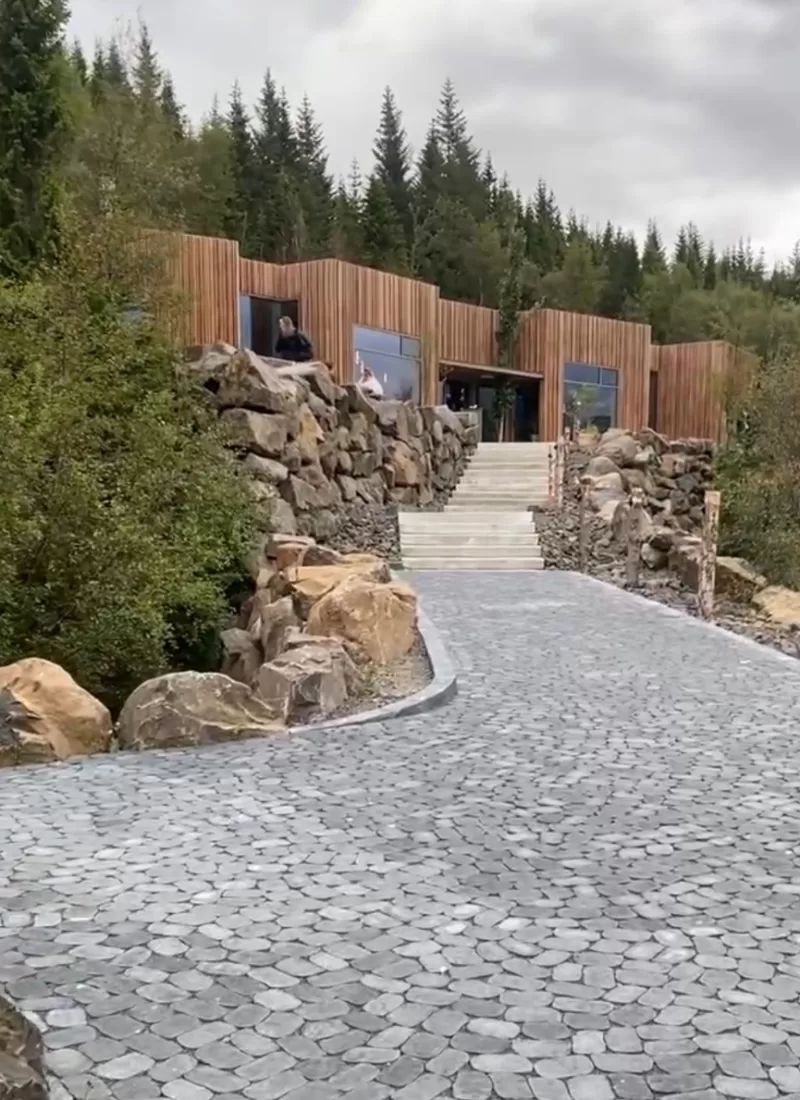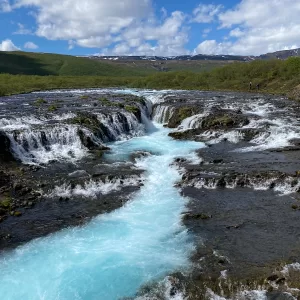When planning a trip to a new destination a whole lot of questions usually pop up in one’s head. This can be questions regarding language, currency, weather, safety and so much more.
In the following list I’ve gathered 12 common questions people have about different things when they plan to visit Iceland for the first time ever. By running through these questions and the answers to them, you’ll get a much better overview over what to expect when you finally come and visit the windy but beautiful island in the north.
So let’s dig into this Q&A.
#1
Can I Buy Alcohol in the Supermarkets in Iceland?
No you can’t. You can only buy alcohol in special stores, called Vínbúðin.
Note that many grocery stores have something that looks like beer on their shelves but it’s non- alcoholic. I know about quite many that have fallen into that “trap” so I just wanted to make you aware of this.
⚠️ Really good to know
Alcohol is very expensive in Iceland. Therefore it’s a great idea to buy some at the Duty Free shop when you arrive at Keflavík International Airport. That’s what we locals do to save some money on alcohol. We stock up everytime we go abroad. Or you know, when we come back 🙂
#2
What’s the Currency in Iceland?
The currency in Iceland is Icelandic krona. It’s possible to pay in many restaurants and tourist attractions with US dollars, Euros and even other currencies. I wouldn’t count on it though.
The easiest way to exchange currency is to do it at the airport when you arrive. At the airport you’ll both find a bank and numerous ATMs. May not be the cheapest way to go but by far the easiest.
But then again you might want to ask yourself if you really need cash at all. See the answer to question number three to find out why.
#3
Do I Need Cash in Iceland?
I say the answer to this question is no. You can pay with a credit/debit card literally everywhere. The only situations I can think of right now where you would need cash is in some restrooms around the country and if you want to tip your tour guide. But then again, you can tip your tour guide with dollars or euros, so you don’t need to carry Icelandic krona for that purpose.
Most people I know don’t carry cash on them on a daily basis as they don’t need to. And neither do I 🙂 So the bottom line is that you need very little cash while in Iceland. If any at all.
⚠️ Really good to know
A card with a chip and pin is the best option. You can’t, for example, buy gas at gas stations, where there is no personnel, without a pin.
#4
Do I Need to Tip in Iceland?
No you don’t have to tip. Tipping isn’t customary in Iceland but of course it isn’t frowned upon either. If you get a really good service and want to show your gratitude by tipping, please feel free to do so. It will always be truly appreciated even though it isn’t expected.
This goes for all services such as restaurants, bars, cafés, taxis and so forth.
#5
Do They Speak English in Iceland?
Yes, English is widely spoken in Iceland. The native language is Icelandic but the majority of the population also speaks English. People are generally happy to speak it so you shouldn’t have any problems communicating with the locals.
#6
Is Iceland a Safe Country?
Of course we have crimes here in Iceland like everywhere else in the world. But the crime rate is very low and the country is considered to be one of the most peaceful countries in the world. Therefore there is no reason for you not to feel safe traveling around the country.
Iceland is listed among the safest destinations in the world for solo female travelers. Which also says a lot. I can personally verify this as I travel a lot alone around the country 🙂
⚠️ Important to know
Even though Iceland is a safe destination from a criminal perspective, there are other safety issues you need to keep in mind. That is nature. Icelandic nature is truly stunning but it can also be very brutal.
A good example of that is the popular Reynisfjara Black Sand Beach which has taken way too many lives in recent years. Here you really need to take the warning signs seriously as it’s literally a matter of life and death. No joke.
The weather is also something you need to take very seriously. Even an innocent site like the plane wreckage on Sólheimasandur can be a dangerous place if you don’t respect the weather warnings.
In January 2020, two tourists died of hypothermia near the wreckage after getting caught in a storm that went over the area.
A month later, search and rescue units needed to rescue several people that had ignored warnings from the police to not hike to the wreckage due to really bad weather forecast in the area. I can’t emphasize it enough. Respect the weather and the weather warnings.
The weather conditions can change very quickly and therefore you always need to be up to date when you’re traveling on your own. The best places to get information about weather and travel conditions are these two websites:
Icelandic Met Office | en.vedur.is Travel Conditions and more | safetravel.is#7
Is Iceland Expensive?
Sorry to say, but yes it is. That’s just how it is and believe me I wish I could tell you otherwise.
Rental cars, accommodation, dining out and last but not least alcohol is very expensive here in Iceland. So when planning your trip, it can save you a lot of money to book rentals and accommodation well in advance. And of course as I mentioned before, buy your booze at Duty Free when. you arrive.
On the flip side, people come here to explore and experience amazing nature and that is pretty much free. You have to pay for parking in some places but other than that, it’s free. I guess that must count for something, right? 😅
The Wandering Soles have written a very good and detailed blog post about how you can save some money on your trip to Iceland. Check it out for some money saving tips.
#8
Is Reykjavík Worth Visiting?
Let’s be honest here. Reykavík is a nice city and has plenty to offer but the real reason people come here is the country’s stunning nature.
I’m not saying you shouldn’t explore Reykjavík but what you really want to do is spend most of your time out in the country. So don’t use too much time to explore the capital. Get out on the road and get ready to be amazed by the breathtaking nature all around 🤩
#9
Can I Drink the Tap Water in Iceland?
Yes you can! It’s clean, safe and delicious. Locals never buy bottled water and actually it wasn’t possible to buy bottled water in supermarkets in Iceland until a few years ago or when the explosion in tourism occurred.
So never buy bottled water in Iceland. Save you some money and the world some plastic and drink the tap water from a refillable bottle.
#10
What is the Weather like in Iceland in Summer?
- The average temperature in Iceland in summer is about 10°C/50°F so dress accordingly.
- You also need to be prepared for higher (usually not higher than 20°C/68°F) and lower (even as low as 5°C/41°F) temperatures plus some storms and heavy rain.
- Iceland is windy. Almost always. It just varies how strong the wind is.
- The weather in Iceland in summer is unpredictable and changes a lot. Even within the same day or the same hour. Therefore dressing in layers is key when out in nature in Iceland.
As the weather is constantly changing, it’s a good idea to watch the weather forecast. I wouldn’t let it control your actions completely though. But it will give you an idea of what to expect each day.
You can always check the weather forecast for Iceland here.#11
When is the Best Time to Visit Iceland?
That is a tricky one and the answer totally depends on what you’re after. What you would like to see and do.
Roughly speaking I would say if you are a hiker, want to explore the Highlands, see some puffins, experience the midnight sun and/or get the best weather, the summer months are the right time for you to visit. The downside is that there are more crowds and things like rentals and accommodation are more expensive.
For less crowds, cheaper accommodation and rentals along with the possibility to see the northern lights and experience some snowy conditions, the winter months are the answer for you. You should note though, that neither the snow nor the northern lights are ever guaranteed.
⚠️ Really good to know
When traveling in winter, make sure you plan outdoor activities well as the days are short. Actually they are VERY short from late November to mid-January. Then you only have 4-5 hours of daylight each day. Consider starting your day while it’s still dark to get the most out of it. If you are slow to rise then you can easily run out of time during the darkest months.
In June and July it’s quite the opposite. Then you have all the time in the world as it never really gets dark. Just remember to pack a sleeping mask. The bright summer nights are amazing but can give you trouble sleeping at night.
#12
When Can I See Midnight Sun in Iceland?
The best time to experience the Icelandic midnight sun is around June 21st. Around that time we have the summer solstice, the longest day of the year. Here in Iceland that means it doesn’t get dark at all during the night. Pretty cool, right?
As you get further from June 21st, the shorter the days get but that process happens quite slowly. Therefore you can still experience the midnight sun from mid-May to mid-August. Technically it’s not midnight sun this whole period as the sun sets before midnight in May/early June and late July/August but the nights are still long and much brighter than during the rest of the year.
Well, that’s it for now. If you liked this post and think some of your friends might be interested in reading it too, please help me spread the word. I’d really appreciate it if you’d share it on social media or just send it directly to a friend.
Until next time!




Leave a Reply